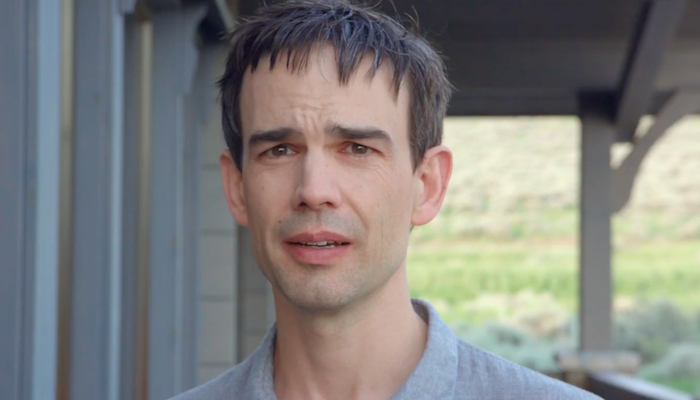SALT LAKE CITY — Christopher Gorham is a talented guy, isn’t he?
The actor has been a local favorite since starring alongside Anne Hathaway in the 2001 movie, “The Other Side of Heaven,” and has since enjoyed a successful career either doing television or superhero voiceover work.
Gorham has a history of making accomplished casts better, and his boyish charisma has served him well as he transitions from one character to the next.
But like many actors before him, Gorham hasn’t been content taking on just one character at a time. He’s a storyteller, and as such, he’s wanted his shot in the director’s chair.
Which is why, on Aug. 4, the world will be introduced to Gorham’s directorial debut, “We Love You, Sally Carmichael!”
So how did it turn out? When it comes to actors-turned-directors, is Gorham more like Academy Award winning Ben Affleck or “Before We Go” director Chris Evans?
Like always, let’s chat about the highlights:
The premise
Sally Carmichael is a beloved, though critically snubbed, YA romance novelist with a devoted and passionate fan base. But Carmichael fans have never met the notoriously private author because, as it turns out, she doesn’t exactly exist. Carmichael is simply the nom de plume of the socially inept Simon Hayes (Gorham), and Hayes will go to any lengths to keep this seemingly important fact a secret.
That is, until he meets a beautiful book store owner, Tess (Elizabeth Tulloch).
When Tess asks Hayes to write a Carmichael critique for her independent newspaper, Hayes kicks off a series of dominoes that ultimately threatens to expose his secret identity and fracture the lifestyle he’s worked so hard to preserve.
The cast
Everything right with “We Love You, Sally Carmichael!” rests on the shoulders of its very likable cast.
Front and center, of course, is Gorham’s Simon Hayes and Tulloch’s Tess, who together enjoy an easy and natural chemistry. Sebastian Roché, who plays the eccentric leading actor, Perry Quinn, also deserves credit for balancing the story’s comedy, and the long list of surprise cameos fall in line nicely as the movie progresses.
Not every performance escapes the straight-to-DVD look and feel that often haunts similar projects, but at the end of the day, the Sally Carmichael ensemble deserves kudos for bringing life to a pretty lackluster script.
The script
Almost everything wrong with “We Love You, Sally Carmichael!” lands flatly on the pages of a script that sacrifices its own journey to ensure a safe and generic destination.
Writer Daryn Tufts seems to build stories according to a formula that dictates what happens next, even if that leaves his characters with no reason for their behavior.
For example, Hayes is an author who writes a terrible book and takes on a pseudonym to hide that fact. This is something audiences are asked to accept so the story can begin, but when it comes to a compelling reason for Hayes’ behavior, one isn’t readily available.
This is a character who isn’t motivated by money, hates attention and is ashamed of his product, so why is there a Sally Carmichael?
This kind of plot-above-all-else approach shows up again and again as Quinn sits in an interview, publicists threaten lawsuits and Tess ends a relationship. Events happen because if they don’t happen, Tufts will no longer be able to paint by numbers. Sometimes characters give a half-hearted explanation for their out-of-character behavior, sometimes they don’t.
The director
It was a little unfair to ask if Gorham is more Affleck or Evans, seeing as Gorham’s background is mostly television. This is not a movie we can fairly compare to something like “Argo.”
This does bring up an important additional question, however, which is, what are audience’s expecting when they buy a ticket to “We Love You, Sally Carmichael!”?
As far as television movies go, “Carmichael!” is fine. It substitutes laugh tracks with obnoxious musical queues, and there are a few shots that feel more home movie than commercial production, but at the end of the day, Gorham tells the story he’s given.
But if audiences are expecting studio or even a festival quality production, they’re going to be very disappointed.
Conclusion
Knowledge is the key to “We Love You, Sally Carmichael!”
When it comes to the kind of movies falling in the Utah/Mormon movie genre, “We Love You, Sally Carmichael!” is better than most.
Make sure your expectations are set to that quality-level going in, and Gorham, Tulloch and Roché will keep you entertained. In fact, there’s an obvious irony going on with Gorham’s first crack behind the camera and the story he’s decided to direct. This is a movie with too many glaring faults for critics to ignore, but a target audience may love. In that way, there’s a kind of brilliance to the film. But as a critic, let me also say that brilliance was unintentional and your best bet with “Carmihcael!” is to think about it as little as possible.

Recent Comments